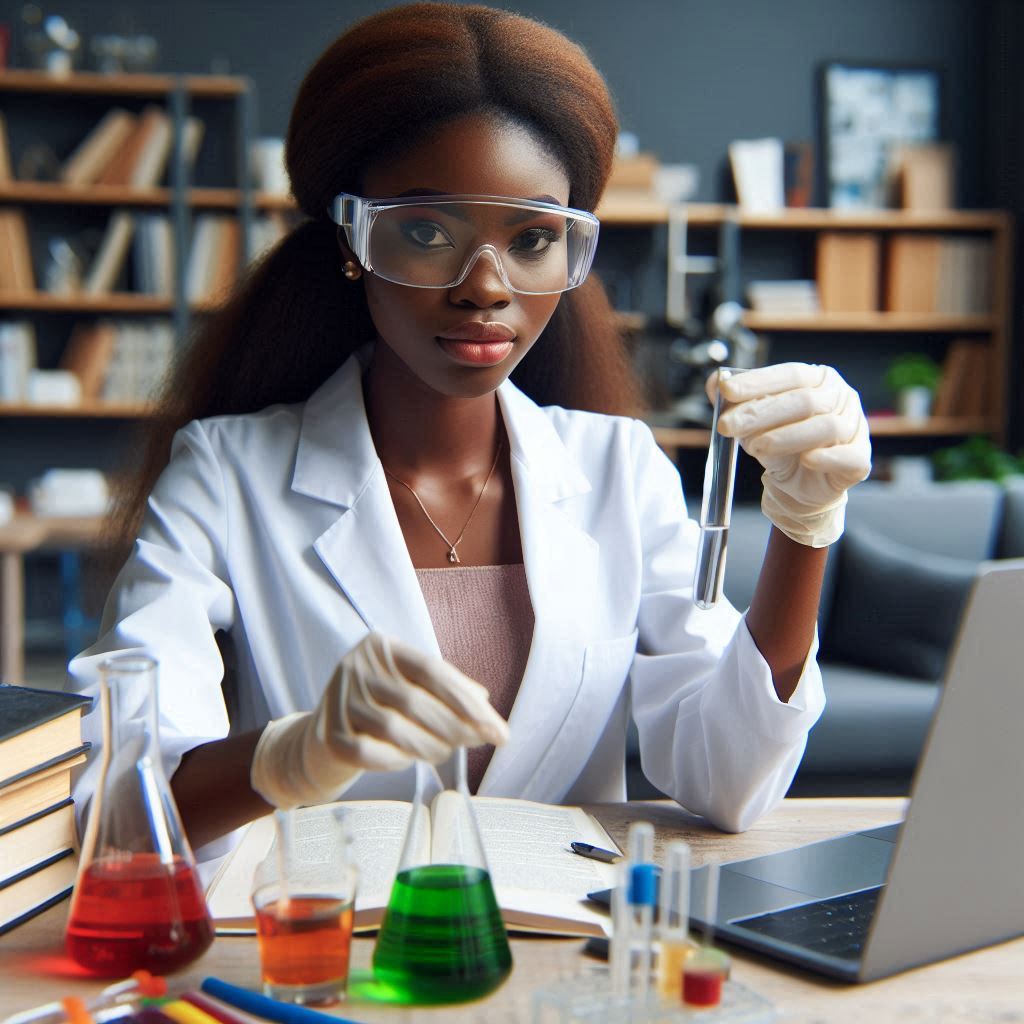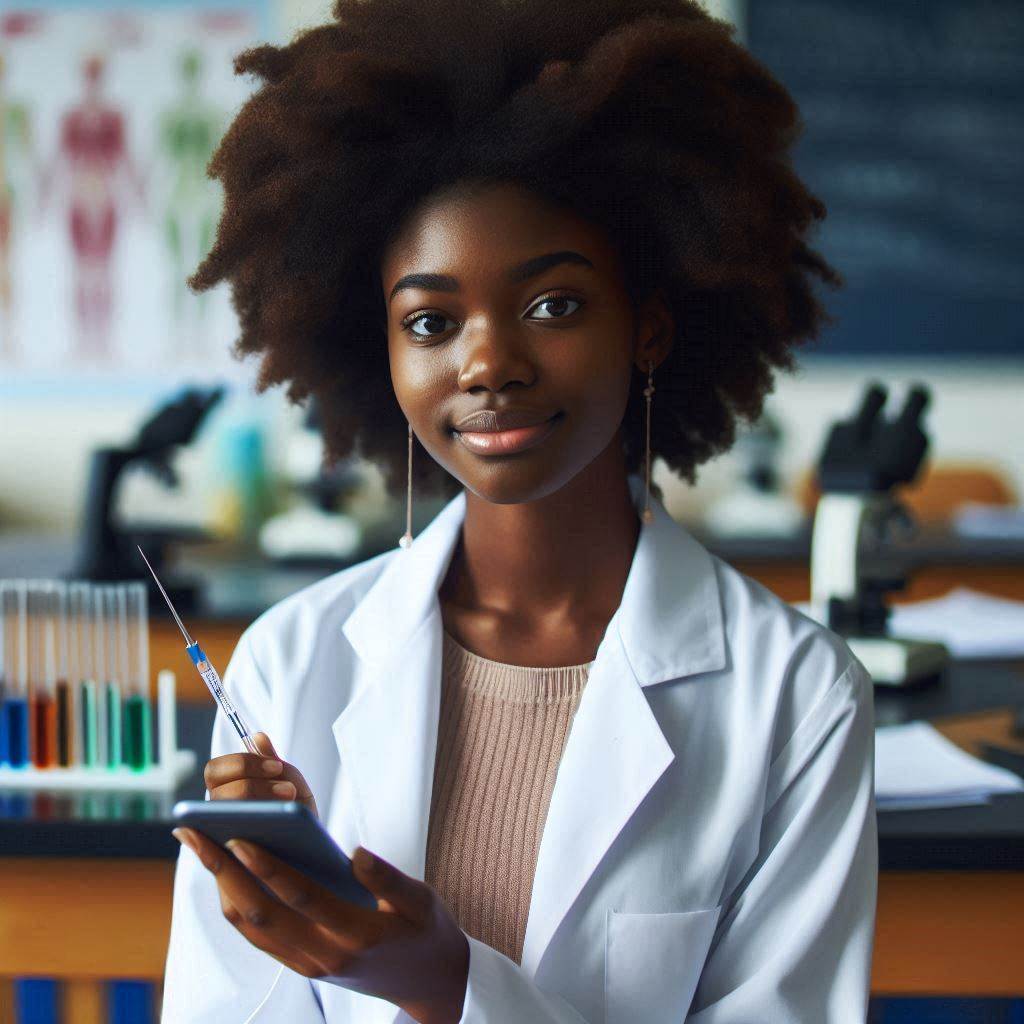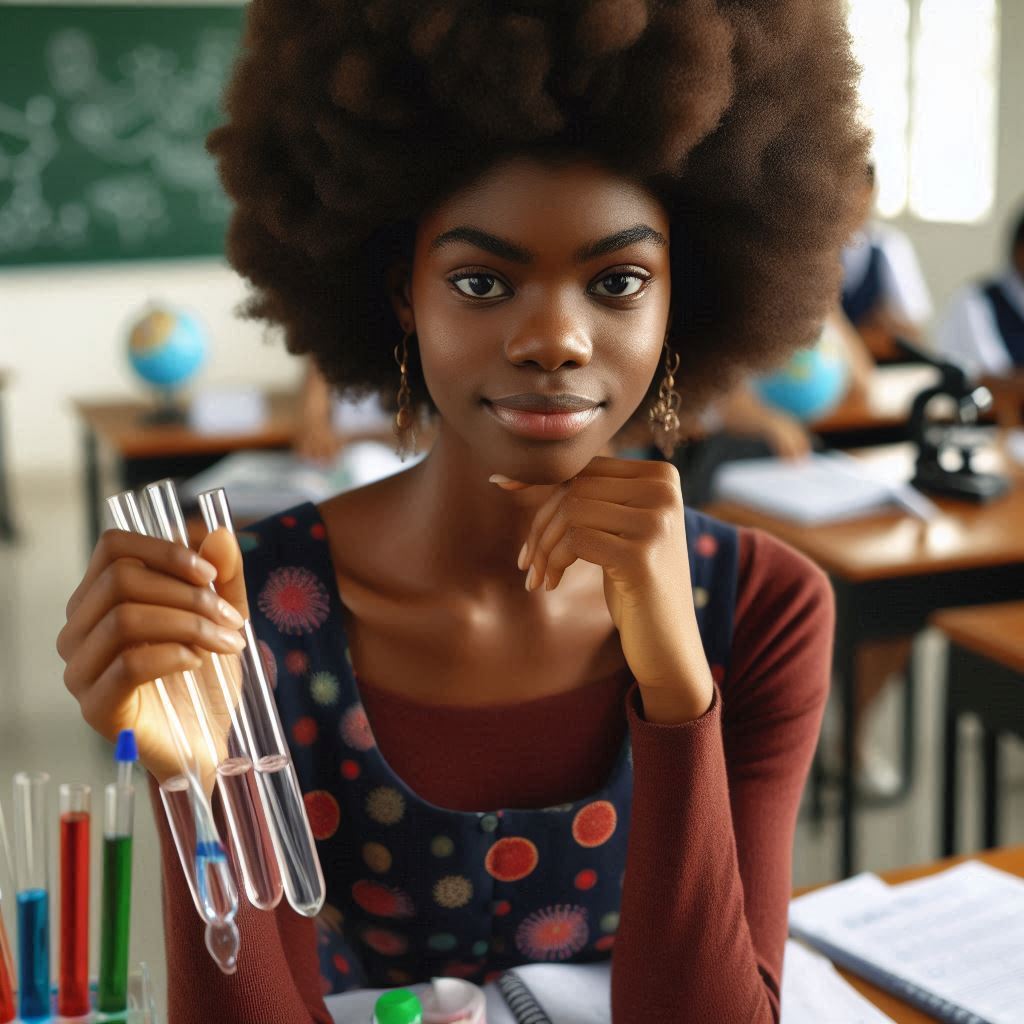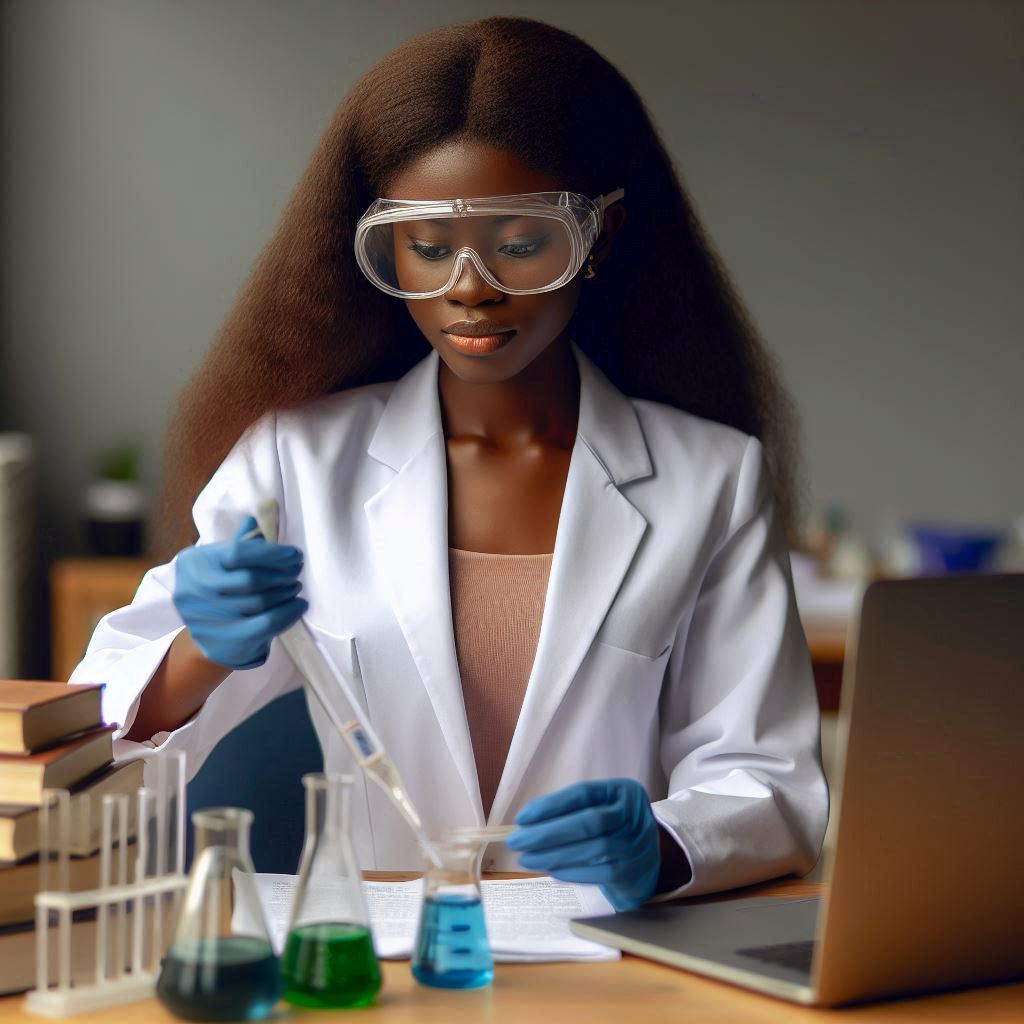Introduction
The United Nations established Sustainable Development Goals (SDGs) to address global challenges and promote a sustainable future.
These 17 goals aim to eradicate poverty, protect the planet, and ensure prosperity for all.
Achieving the SDGs requires an integrated approach, and biology education plays a crucial role.
Understanding biological processes and systems empowers individuals to address environmental issues effectively.
Biology education promotes awareness of biodiversity, conservation, and the sustainable use of natural resources.
It equips students with the knowledge to tackle climate change, manage ecosystems, and protect endangered species.
By fostering a deeper understanding of life sciences, biology education drives innovation in sustainable agriculture and healthcare.
Educated individuals can develop solutions for clean water, food security, and public health.
Consequently, biology education is vital for achieving the SDGs and ensuring a sustainable future for generations to come.
Investing in biology education will pave the way for a healthier and more sustainable world.
The Role of Biology Education in Promoting Sustainable Development
Biology education plays a crucial role in promoting sustainable development. It equips individuals with the knowledge and skills to address environmental issues effectively.
By understanding biological processes, students can better appreciate the complexity of ecosystems and the importance of preserving them.
This section discusses how biology education raises awareness about environmental issues and highlights the significance of teaching conservation and biodiversity.
Raising Awareness About Environmental Issues
Biology education raises awareness about critical environmental issues through:
- Understanding Ecosystems: Students learn about the intricate relationships within ecosystems.
- Climate Change: Biology courses teach the impacts of climate change on different species.
- Human Impact: Education highlights how human activities affect natural habitats and resources.
- Sustainable Practices: Students discover sustainable practices that reduce environmental harm.
Educators use real-world examples to illustrate these concepts, making them relatable and urgent. For example, teachers might discuss the effects of pollution on local wildlife or the global consequences of deforestation.
By making these connections, biology education fosters a sense of responsibility and urgency among students.
Teaching Conservation and Biodiversity
Conservation and biodiversity are essential components of biology education. Teaching these topics involves:
- Species Importance: Educating students about the role of various species in ecosystems.
- Habitat Protection: Emphasizing the need to protect natural habitats for future generations.
- Endangered Species: Highlighting the plight of endangered species and the importance of their protection.
- Genetic Diversity: Explaining how genetic diversity within species contributes to ecosystem resilience.
Students learn about conservation strategies such as protected areas, wildlife corridors, and breeding programs.
They also explore international conservation efforts, like the Convention on Biological Diversity. Understanding these efforts helps students appreciate the global nature of conservation work.
Practical Applications
Biology education also includes practical applications, such as:
- Field Studies: Students engage in field studies to observe ecosystems firsthand.
- Research Projects: Conducting research projects on local environmental issues.
- Community Involvement: Participating in community-based conservation projects.
- Citizen Science: Contributing to citizen science initiatives that monitor biodiversity.
These activities provide hands-on experience, reinforcing theoretical knowledge and fostering a deeper connection to the natural world.
Students gain critical thinking and problem-solving skills, which are essential for developing sustainable solutions.
Biology education is vital in promoting sustainable development by raising awareness about environmental issues and emphasizing the importance of conservation and biodiversity.
It equips students with the knowledge and skills necessary to protect our planet for future generations.
By integrating practical applications and real-world examples, biology education fosters a sense of responsibility and empowers individuals to make sustainable choices.
Investing in biology education ensures that future leaders are well-prepared to tackle environmental challenges and contribute to a sustainable future.
Integrating Sustainable Development Goals into Biology Curriculum
In today’s rapidly changing world, it is essential for educators to incorporate sustainable development goals into the biology curriculum to prepare students for the challenges they will face in the future.
By aligning teaching practices with these goals, educators can ensure that students are not only equipped with the necessary knowledge of biology but also understand the importance of sustainability in their actions and decisions.
Ways to Incorporate Sustainable Development Goals into Biology Lessons
- Introduce case studies that highlight the impact of human activities on the environment and biodiversity.
- Discuss the interconnectedness of ecosystems and the importance of preserving biodiversity for a sustainable future.
- Engage students in discussions about global issues such as climate change, deforestation, and pollution, linking them to biology concepts
- Encourage students to explore solutions to environmental challenges through project-based learning activities.
- Integrate topics such as conservation biology, sustainable agriculture, and renewable energy into the curriculum.
Examples of Aligning Teaching with Sustainable Development Goals
- Design lessons that emphasize the role of biology in addressing climate change and promoting sustainable practices.
- Organize field trips to local ecosystems or conservation centers to raise awareness about biodiversity conservation.
- Incorporate guest speakers from environmental organizations or research institutions to provide real-world perspectives on sustainability.
- Create opportunities for students to participate in community service projects related to environmental conservation and restoration.
- Use multimedia resources such as videos, documentaries, and online simulations to enhance students’ understanding of sustainability issues.
By integrating sustainable development goals into the biology curriculum, educators can empower students to become environmentally conscious citizens who are capable of making informed decisions and taking action to protect the planet.
Through hands-on learning experiences and meaningful connections to real-world issues, students can develop a deep understanding of the importance of sustainability and their role in creating a more sustainable future.
Read: How to Enroll in Adult Education Programs in Nigeria
Empowering students through biology education
In today’s ever-changing world, it is imperative to equip students with the necessary knowledge and skills to understand and contribute to sustainability efforts.
Biology education plays a crucial role in empowering students to grasp the concepts of sustainability and sustainable development goals.
Impact of Biology Education on Students’ Understanding of Sustainability
Biology education serves as a gateway for students to learn about the intricate connections between living organisms and their environments.
By studying biology, students gain a deeper understanding of the interdependence of all life forms and the delicate balance that sustains ecosystems.
Through biology education, students are introduced to key concepts such as biodiversity, conservation, and ecological sustainability.
This foundational knowledge empowers students to recognize the importance of preserving the environment and biodiversity for the well-being of present and future generations.
Furthermore, biology education fosters critical thinking skills and encourages students to analyze complex environmental issues from a scientific perspective.
Students learn to evaluate the impact of human activities on the environment and explore sustainable solutions to mitigate these effects.
Case Studies of Schools or Organizations Successfully Integrating Sustainable Development Goals into Their Biology Programs
- Green School Bali: This innovative school in Bali integrates sustainable development goals into its biology curriculum, exposing students to real-world environmental challenges and encouraging them to develop solutions through hands-on projects.
- Montgomery Blair High School: Located in Maryland, USA, Montgomery Blair High School incorporates sustainable development goals into its biology education by organizing field trips to local ecosystems and engaging students in community-based conservation projects.
- Earthwatch Institute: This global non-profit organization partners with schools to provide students with opportunities to participate in biodiversity research projects around the world, enhancing their understanding of the importance of conservation and sustainability.
These case studies exemplify how schools and organizations are successfully integrating sustainable development goals into biology education, thereby equipping students with the knowledge and skills needed to become informed and proactive global citizens.
Most importantly, biology education plays a vital role in empowering students to understand and contribute to sustainability efforts.
By incorporating sustainable development goals into biology programs, educators can inspire the next generation to take action towards building a more sustainable and equitable future for all.
Read: Success Stories from Nigeria’s Adult Education Programs
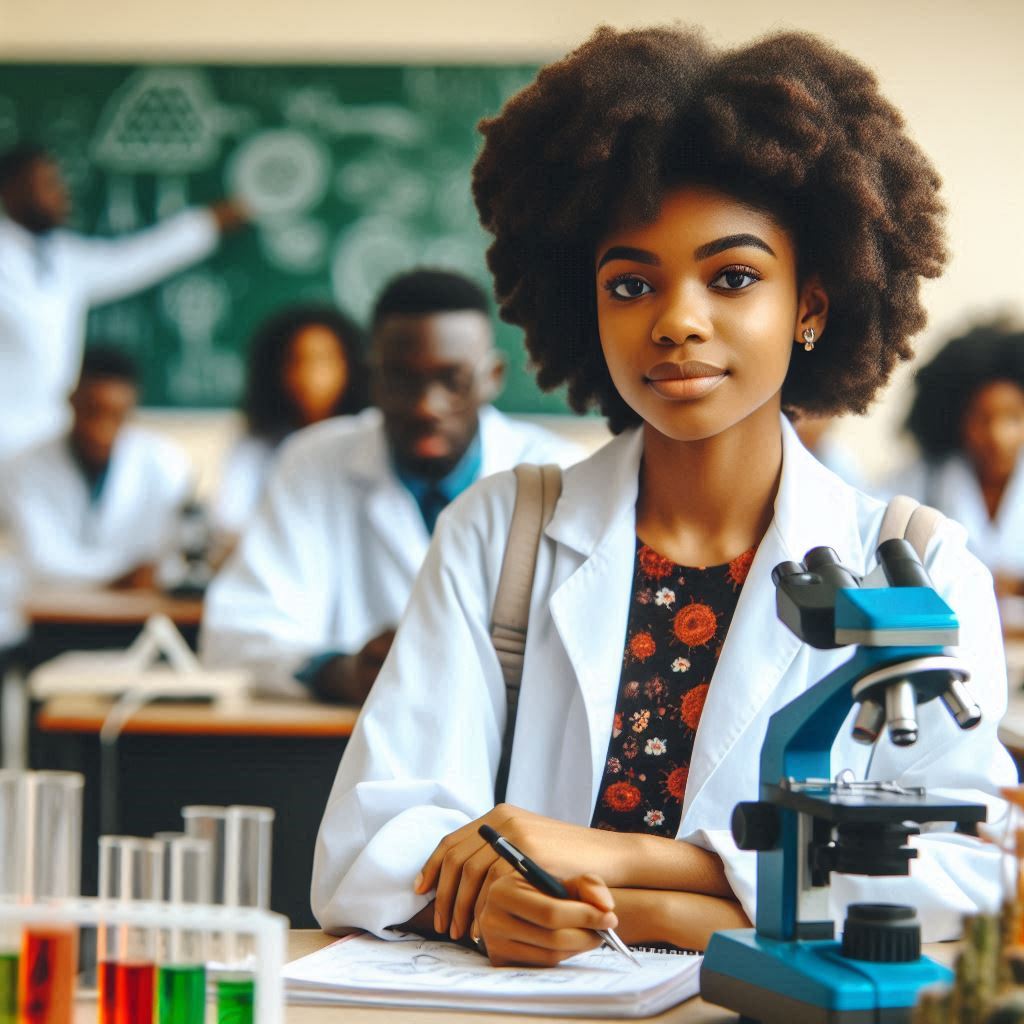
Challenges and barriers to implementing sustainable development goals in biology education
When it comes to incorporating sustainability into biology education, educators often face a number of obstacles that prevent them from fully integrating these important concepts into their curriculum.
Identifying these common barriers is the first step towards finding solutions and strategies for overcoming them.
Identify common obstacles faced by educators
- Lack of resources: Many educators struggle with limited resources to teach about sustainability effectively.
- Resistance to change: Some educators may be resistant to altering their curriculum to include sustainability goals.
- Time constraints: Educators often cite time constraints as a major barrier to incorporating sustainability into their lessons.
- Lack of training: Educators may not have the necessary training or professional development opportunities to teach about sustainability.
- Curriculum standards: Existing curriculum standards may not include sustainability goals, making it difficult for educators to address them.
Offer solutions and strategies for overcoming these challenges
- Provide professional development: Educators can benefit from training programs that focus on sustainability in biology education.
- Collaborate with other educators: Sharing resources and ideas with fellow educators can help overcome resource limitations.
- Integrate sustainability across subjects: Finding ways to incorporate sustainability into multiple subjects can help address time constraints.
- Advocate for curriculum changes: Educators can work to advocate for changes to curriculum standards to include sustainability goals.
- Utilize online resources: There are a wealth of online resources available to educators looking to teach about sustainability.
By identifying and addressing these challenges, educators can work towards integrating sustainable development goals into biology education in a more effective and impactful way.
It is crucial for educators to be proactive in finding solutions and strategies that will help them overcome these barriers and provide their students with the knowledge and skills needed to promote a more sustainable future.
Read: Comparing Formal and Non-Formal Education in Nigeria
Collaborations and partnerships for sustainable development
The importance of collaboration between schools, government agencies, and NGOs in promoting sustainable development
Collaboration between different stakeholders is crucial for achieving sustainable development goals. Schools play a vital role in educating future generations about the importance of sustainability.
By collaborating with government agencies and NGOs, schools can incorporate practical initiatives into their curriculum, fostering a culture of sustainability among students.
Government agencies hold the power to implement policies and regulations that promote sustainable practices.
By partnering with schools and NGOs, they can ensure that educational institutions are equipped with the necessary resources and support to implement these policies effectively.
NGOs, on the other hand, bring expertise, resources, and community connections to the table, making them valuable partners in promoting sustainable development.
Together, these stakeholders can create a holistic approach to sustainable development, where education, policy implementation, and community engagement work hand in hand.
Collaboration also allows for the sharing of best practices, resources, and knowledge, leading to more effective and sustainable outcomes.
The role of partnerships in advancing biology education for sustainable development goals
Partnerships are essential in advancing biology education for sustainable development goals. By working together, schools, government agencies, and NGOs can ensure that biology education is aligned with the principles of sustainability.
This collaboration can take many forms, such as joint research projects, curriculum development, teacher training programs, and community outreach initiatives.
Partnerships allow for a multidisciplinary approach to biology education, incorporating diverse perspectives and expertise in the teaching process.
By partnering with government agencies, schools can access funding opportunities and policy guidance to support their sustainability initiatives.
NGOs can provide fieldwork opportunities, resources, and expertise in specific areas of biology that can enhance the learning experience for students.
Moreover, partnerships create a network of support and collaboration, where stakeholders can exchange ideas, share resources, and amplify their impact on sustainable development.
By fostering strong partnerships, biology education can become a powerful tool for creating a more sustainable future, where students are empowered to make informed decisions and take action towards environmental conservation and biodiversity preservation.
Therefore, collaborations and partnerships play a vital role in promoting sustainable development goals through biology education.
By working together, schools, government agencies, and NGOs can create a synergistic relationship that enhances the quality of education, drives policy change, and empowers students to become agents of change for a sustainable future.
Read: Non-Formal Education Methods in Nigeria Explained
Conclusion
Biology education plays a crucial role in achieving Sustainable Development Goals (SDGs). By understanding ecosystems, students can better address global challenges.
The blog discussed how biology education fosters environmental awareness and conservation. It highlighted the importance of teaching biodiversity to ensure ecosystem resilience.
Integrating sustainability in biology lessons helps students grasp the impact of human activities on the planet. Educators must emphasize sustainable practices and solutions to inspire action among learners.
Effective biology education empowers future generations to develop innovative solutions for sustainability.
It bridges the gap between knowledge and real-world application. Sustainable development hinges on a well-informed population capable of making responsible decisions.
Biology educators are key in instilling these values and skills.
Let’s continue integrating sustainability into biology education.
This effort will equip students to tackle environmental issues and drive positive change.
Together, we can build a sustainable future through comprehensive biology education.

